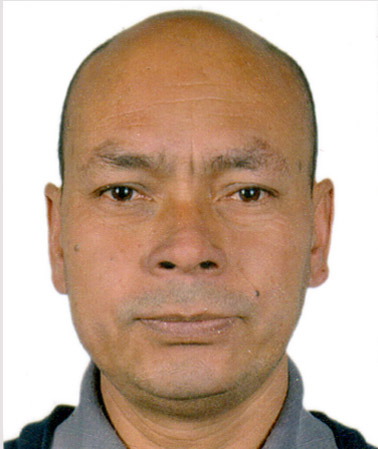(Article changed on January 17, 2013 at 03:21)
(Article changed on January 17, 2013 at 03:07)
Often
over-pressurized by the Unified Marxist-Leninist (UML), the Nepali Congress (NC) and the Communist Party of
Nepal--Maoist (CPN--M) to sack the Baburam-led government without hesitation,
President Dr. Ram Baran Yadav, constitutionally ceremonial but psychologically
eager to use executive power, has on 15 January 2013 called the major leaders
of the leading parties to his residence for more consultations regarding the formation of the next government
under so-called a consensus format.
Since
his own future is uncertain should he sack the government, the only remaining state-representing
tool following the dissolution of the elected Constituent Assembly (CA) as
defined by a verdict of Nepal's Supreme Court, the
President has hesitated to resort to a dictatorial method frequently suggested
by the parties other than those in power. Those in power--namely, Unified Communist Party
of Nepal Maoist (UCPNM) and the coalition of Madhesi factions--blindly believe
that they are evergreen rulers favored by celestial compositions in the
Universe. The price hikes ranging from 100 percent to 1,000 percent in the
Nepali markets have created life-crises for the majority of the working class
people. But the so-called revolutionaries, who have not appeared very different
from the previous versions of leftist rulers in Nepal, have never bothered to think
over people's plight. They seem sound asleep, not producing any noise while in
power.
The
President has time and again told the major parties to forge a national
consensus for a government, without seriously addressing the vital concerns of
the peace process--the ingredients of the proposed new constitution. Contrarily, the President has repeatedly called
leaders to his residence and ordered them to come up with an idea for a new
government. This annoying repetition in the name of national consensus has
further marginalized the Nepalis as regards the fruits of change process that
began following the de facto end of the decade-long armed insurgency in the
country.
The
Nepalis prefer to see stable peace through a new republican constitution that
guarantees their human rights in the form of applicable inclusive democracy. However,
no parties have ever concentrated on the change agenda; instead, they have
demonstrated their full devotion to making or toppling the government--an
activity that has annoyed the people.
Neither
the Maoists--now in two splits--nor the NC and the UML have analyzed the
situation after they go for a new election without signing an agreement to
preserve the previously approved draft and the declaration of republic. Since
the previous CA, along with the Legislative-Parliament, has been dissolved
without declaring a new constitution in which the republic and the concept of
federalism could be institutionalized, it would not be very wise to head
towards a new and vaguely defined election without respecting the dignity and
spirit of the people's struggles that led to the signing of the Comprehensive
Peace Accord in November 2006.
It
is beyond a concrete piece of evidence for constant partisan tussles for a new
government without any deliberations on what would happen to the worked-out
substances while in the CA before its dissolution. Completely ignoring the
peace process agenda with indulgence in power-gamble will cause wide-ranging speculations
among the people with differing political, socio-economic and religious-cultural
settings.
Parties
have to become active, not the ceremonial president. The parties that
pressurize the ceremonial President to take an executive decision as soon as
possible do not appear to have internalized the basic culture of democracy yet.
There is a fundamental difference between chanting "democracy' and practicing
it. Nepali parties must painfully exercise practicing democracy. There is no
point having a constitutionally defined ceremonial president as the head of the
state if the parties tend to depend on royal promulgations even under the
republican structure.
As
far as the executive instinct of the ceremonial president is concerned, the
Nepalis had better adopt the active presidential governing system instead of
the co-called ceremonial presidential pattern.





